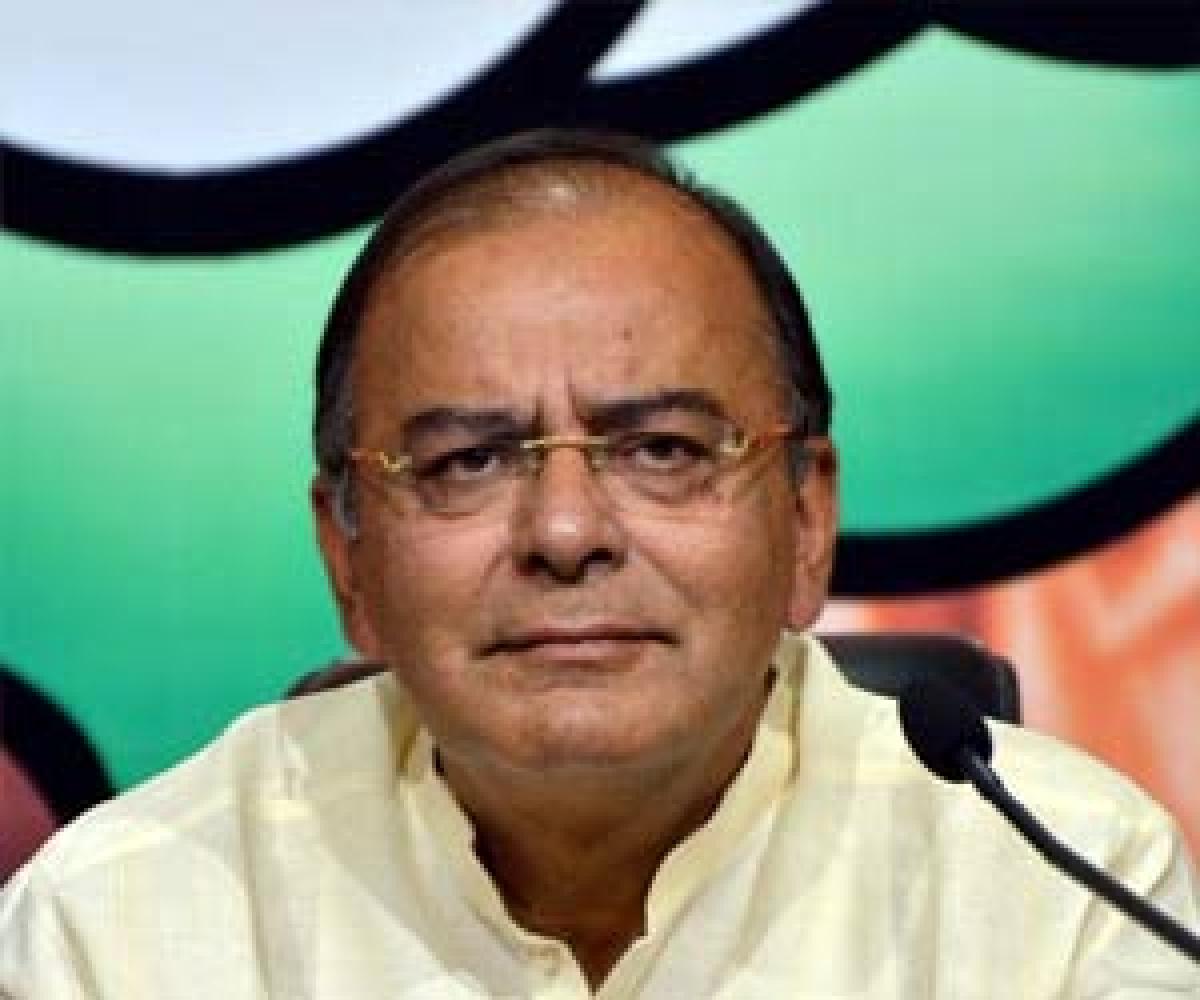Live
- Setback for RGV as HC refuses to quash case against him
- PM Modi interacts with Joe Biden in Rio de Janeiro
- India rated as fastest growing G20 economy
- Maha campaign ends, polls tomorrow
- Assailants of Cong leader held after encounter; 2 hurt
- Manipur situation: 1 protester dead
- CID books Posani for defamatory comments against CM
- Bad weather: 15 flights diverted, over 100 delayed
- Raj HC stays posting of sub-inspectors
- AP, TG move forward to settle bifurcation issues
Just In

With Indian agriculture remaining a worrisome sector and services doing rather well, it is manufacturing that can create the quantum of jobs needed to accommodate urban migration and help the country grow faster, Finance Minister Arun Jaitley has said.
New York: With Indian agriculture remaining a worrisome sector and services doing rather well, it is manufacturing that can create the quantum of jobs needed to accommodate urban migration and help the country grow faster, Finance Minister Arun Jaitley has said.
"As a share of our GDP, the manufacturing sector over the years has shrunk to around 15 percent. Our services sector is fairly robust -- grows annually at around 9-10 percent and is expanding rapidly. It is not a sector that seriously worries us," he said.
"Agriculture obviously is the most worrisome sector of the Indian economy. With just 15 percent contribution to the GDP, you have around 55 percent of the population in agriculture. That's where really the stress in the Indian economy is," the minister told the Asian Society here.
"Over the next few decades, we need to have a very large section of population -- underemployed in agriculture -- getting out of agriculture and getting absorbed in other segments. Obviously, manufacturing is where large jobs are," he said.
"I don't think this is an opportunity we can afford to miss."
Outlining the "Make in India" initiative of Prime Minister Narendra Modi, the reason behind such focus on manufacturing and the steps being taken towards the goal, Jaitley said this was the area that could help India transform into a developed nation.
"That's why the concentration -- and every policy initiative we have been taking in this regard has been in the direction of strengthening the economy, and more particularly, on impacting on our manufacturing sector itself," he said in his 40-minute speech.
Nonetheles, he said, there has been a significant transformation in India in the past few years.
"What was being referred to as 'policy paralysis', is now referred to as the 'bright spot'," he said, alluding to the description India has been accorded by the International Monetary Fund (IMF), meetings of which Jaitley had attended in Washington before arriving here.
"I've belief given the global standards in a slowed environment, India is doing significantly well. But given our own standards and expectations -- of being able to grow faster, eradicate poverty and transform into a developed country -- we probably can do a little better."
Under the "Make in India" initiative, launched in 2014, Jaitley said New Delhi has embarked on an ambitious programme to create jobs for millions of its citizens, who together comprise the world's second-largest population of nearly 1.3 billion people.
He said infrastructure development was central to such a plan and cited the examples of highways, where as many as 233 projects were underway with a target of 30 km per day, and investments in airports to operationaise a couple of hundreds of them of World War II vintage.
On the global economy, Jaitley expressed his concern over the "firewalls" countries have created amid slow recovery, with little signs as to how soon the situation would improve.
"If you were to ask me 'how's the global situation', I think it's grim and worrisome. What will be the state of play a year or two years from now, I don't think anybody has been able for sure to hazard even a significant guess," he said.
"Each one is trying to put firewalls around their own system -- so that within the limitations, how best you can save yourself from slowdown and grow within the limitations that the world has created for you," he said, referring to how nations were dealing with the situation today.
"I can tell you that developing economies being protectionist is much less worrisome than in most developed countries (from where) you hear noises of protectionism."

© 2024 Hyderabad Media House Limited/The Hans India. All rights reserved. Powered by hocalwire.com







